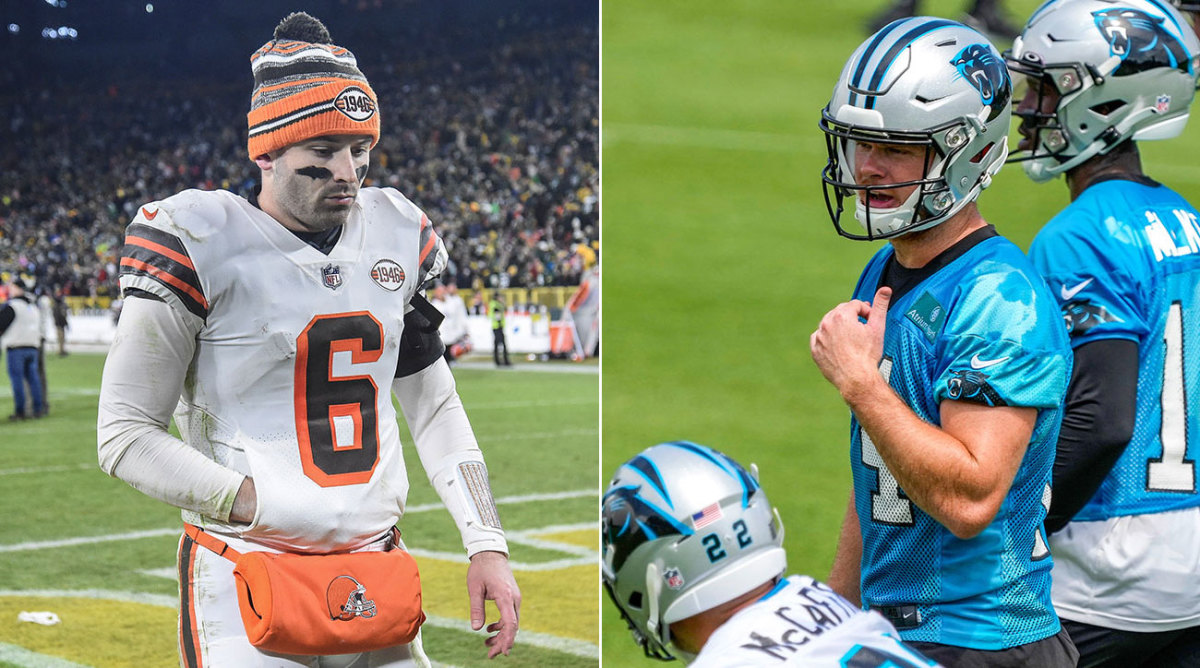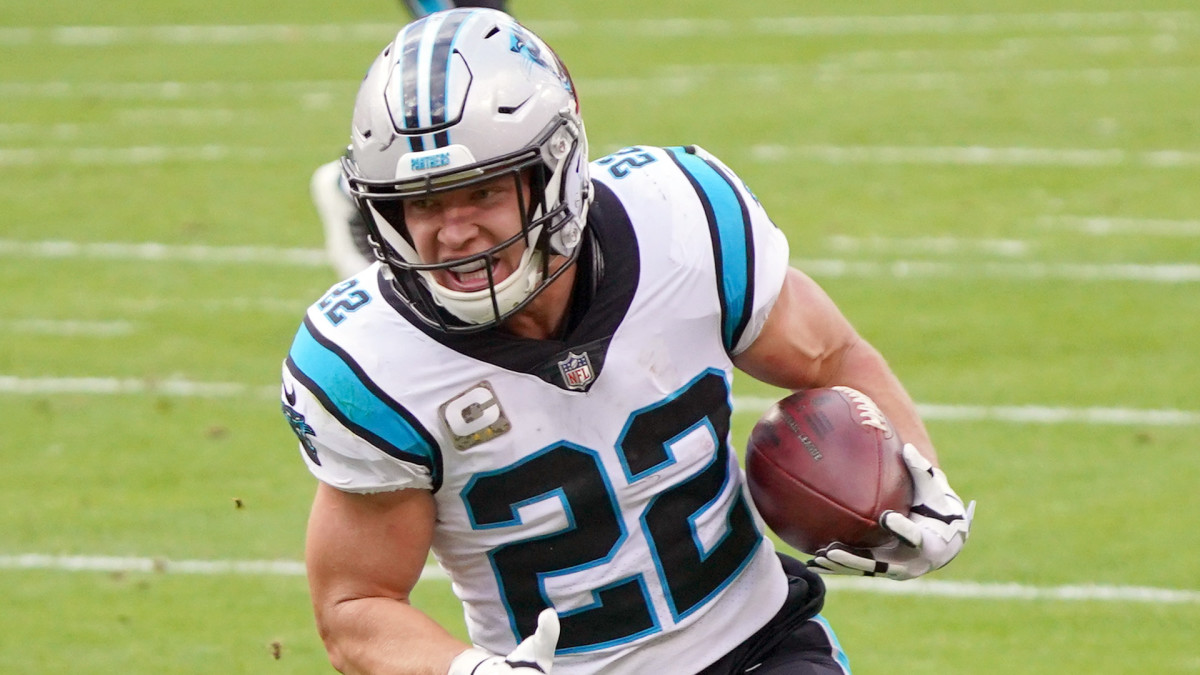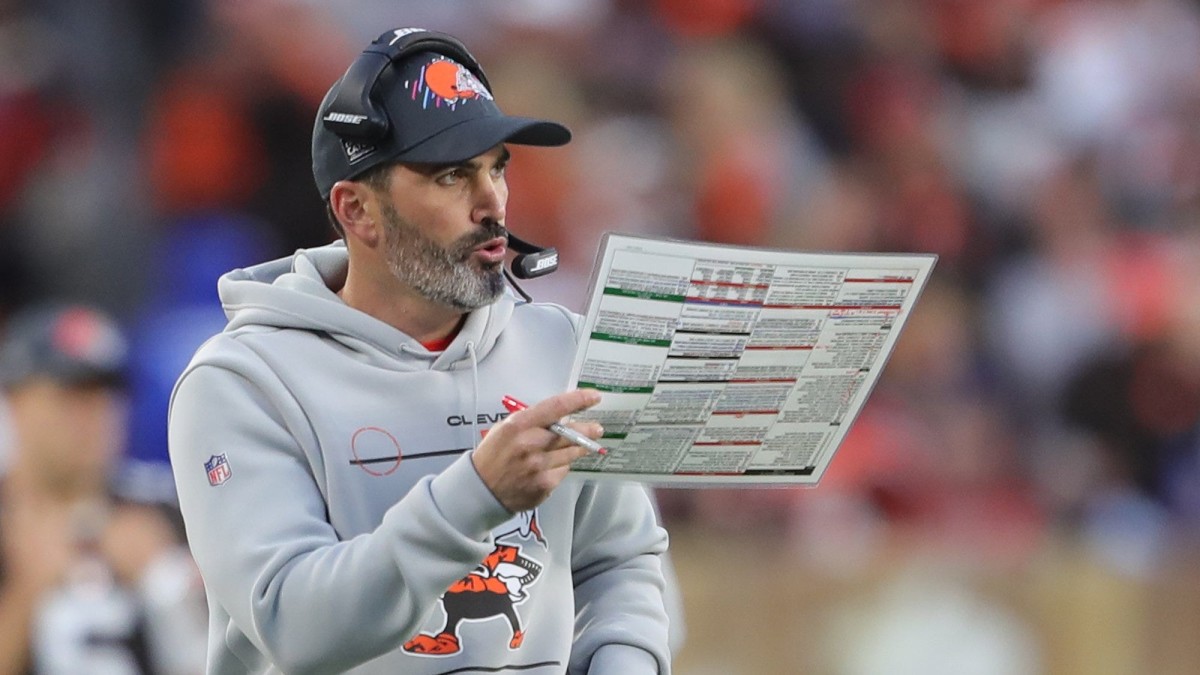Examining the Fallout of the Baker Mayfield Trade to the Panthers
The Browns and Baker Mayfield finalized their high-profile divorce on Wednesday with Mayfield heading to the Panthers for a 2024 conditional fifth-round pick. The Browns will also be paying a large chunk of the quarterback’s salary ($10.5 million, according to NFL Network), while the Panthers are responsible for roughly $5 million. Mayfield himself will take a $3.5 million cut to free himself from his former franchise.
There is an awful lot to dissect here. This is a trade that has tentacles everywhere, from the NFL’s disciplinary process involving Deshaun Watson, to the futures of several other quarterbacks, to a potential lifeline for a franchise obviously flailing.
There are economic consequences, moral consequences and, if nothing else, a surge of interest in a Week 1 Panthers-Browns game that may have barely registered with us otherwise (the NFL always wins).
Let’s get to it:
What this means for Baker Mayfield
While it’s unclear what his personal preferences were, one has to assume Carolina was the better of two possible landing spots (Seattle being the other). The former No. 1 pick gets a chance to revive a career that never was really all that broken. The Browns moved on from Mayfield after one disappointing season severely hampered by a shoulder injury. The year prior, Mayfield registered the NFL’s ninth-best EPA (expected points added) and CPOE (completion percentage over expectation) composite score, ahead of Philip Rivers, Drew Brees, Lamar Jackson and Justin Herbert. Mayfield enters an offense coordinated by former Packers assistant and Giants head coach Ben McAdoo (more on that below) and featuring playmakers Christian McCaffrey, D.J. Moore, Robby Anderson and Terrace Marshall Jr. With reports suggesting Mayfield had to take a small pay cut in order to set the deal in motion, it would seem he had some kind of control over his destination. Picking a team not in the NFC West was a smart choice. The Falcons were one of the worst defenses in the NFL last season. The Panthers also have a friendlier overall schedule.

The Panthers’ offensive line is nowhere near the caliber Mayfield had in Cleveland. Leaving a roster with Joel Bitonio, Jack Conklin, Wyatt Teller and Jedrick Willis (not to mention coach Bill Callahan) should be scary for anyone. That said, Taylor Moton is solid, Austin Corbett improved in Los Angeles and the Panthers spent their first-round pick on the athletic Ikem Ekwonu.
This is still a very short-term window for Mayfield to save himself from a bizarre kind of backup purgatory. Some may view Mayfield as too vocal or forward of a personality to fit as a long-term backup, forcing him into a kind of Cam Newton-ish window of opportunity, where only teams that absolutely need an unquestioned starter are prepared to make a move (oddly, Newton played for the Panthers last year, too).
Mayfield has the unfortunate challenge of trying to showcase both his ability and some kind of newfound poise and temperament, which is necessary to mitigate the anonymous venom that accompanied him as he left the Browns.
What this means for the Panthers
The Panthers have been in the quarterback market perpetually since the arrival of head coach Matt Rhule. The team tried, and failed, to secure Matt Stafford. It whiffed on Watson. Somewhere in between, it executed one of the most ill-advised trades in recent memory, sending a second-, fourth- and sixth-round pick to the Jets for Sam Darnold. Despite a moderately hot start against bad competition last year, Darnold turned out to be the quarterback most pessimists predicted him to be out of college: a talented, but flawed prospect who requires a lot of schematic maintenance. The Mayfield trade is likely the final chance Rhule and GM Scott Fitterer have to turn the organization around. From an administrative perspective, the Panthers have invested a great deal of capital (a second, third, two fourths, a fifth and a sixth-round pick) to net Darnold, Mayfield and Matt Corral. Last year during the head coaching cycle, Rhule’s name was bandied about for college jobs and, simultaneously, as a potential red flag for a firing. Owner David Tepper received a great deal of heat from his NFL counterparts for spending so aggressively on Rhule and ballooning the first-time head coaching contract structure to seven years and $62 million. It’s fair to say Tepper was hoping to see more results by now.
Still, the Mayfield gamble is a worthwhile endeavor. Pairing Mayfield with McAdoo, at first glance, has all the glamor of an aging rock supergroup. To the outside world, this is purely a gathering of names we would recognize if they were answers on Jeopardy! But McAdoo’s tenure with the Giants has taken on a different perspective since his ouster. He brought a team that was wholly flawed and incompetent to the playoffs. He was one of the last coaches to maximize Odell Beckham Jr.’s talent and he turned the notoriously freewheeling Eli Manning into a more efficient passer. Manning made his final Pro Bowl with McAdoo as his offensive coordinator (it was McAdoo’s inability to handle the politics of Manning’s decline that ultimately cost him a job). McAdoo spent last year with the Cowboys, consulting for one of the more potent offenses in the NFL.
Mayfield is similar in that, the best and worst parts of his career may simply be misunderstood. Or, the water is muddy enough to warrant a fact-finding mission. Optically, this trade will be panned. It’s easy to see the Spider Man meme being thrown around here, indicating that both players are essentially the same person, but Mayfield is a more complete passer than Darnold without some of the same ingrained flaws. While Mayfield is no stranger to spotty quarterback play, errantly extending plays and forcing himself into disadvantageous decisions, his shortcomings are different from Darnold’s, which require more of a total effort offensively to cover up.
The Panthers really had no other choice. Outside of installing a hyper-speed RPO offense for Corral, whom, coaches said, needed some time to put the professional game together in his mind after minicamp, Mayfield was their one shot at lightning in a bottle. The trade feels similar to Chip Kelly’s reasoning for acquiring Sam Bradford in 2015. There are so few quarterbacks with elite upside. Absent that upside, would you rather tread water or take a chance at a meaningful upgrade?
What this means for Christian McCaffrey

Interestingly enough, Mayfield has one of the lowest checkdown rates in the NFL, dumping the ball off to his backs on fewer than 5% of his throws last year. No other quarterback with 1,000-plus dropbacks, save for the Bills’ Josh Allen, had a lower checkdown total. If you combined the targets per game received by Nick Chubb and Kareem Hunt in 2020, though, Mayfield would have the sixth-most checkdowns to running backs in the NFL. McCaffrey excels as a wide receiver and is best utilized all over the field. During McAdoo’s best seasons with the Giants in a play-calling role, his lead back Rashad Jennings was targeted, on average, 41 times per season.
What this means for Sam Darnold
Darnold is, more than likely, finished when it comes to being a regular NFL starter. Like so many quarterbacks of his era, it’s not completely his fault. While this will be made out to be a slideshow in some draft busts montage, Darnold had no control over how high he was drafted (No. 3 in 2018), nor did he have much of a prayer as the quarterback of the Jets, a team so painfully mismanaged from a personnel standpoint that there was little his coaches could do. He then went to Carolina as a team’s third choice with a roster that was not yet ready to compete.
It’s hard to imagine the Panthers flipping Darnold for any meaningful assets, especially with Darnold set to make $18 million this year.
What this means for the Browns
The Browns are all in on Watson. They sold their souls and immediately pivoted from coddling Mayfield to rapidly devaluing him as a trade asset. Still, it would be hard to imagine the Browns dealing Mayfield if they felt there was a strong possibility that Watson would be suspended, at minimum, for one year with an option to increase the suspension based on new information. That’s the punishment the NFL is leaking, which means they’d like to have their cake and eat it, too (appearing tough, while also getting a star player back on the field sooner). The Browns are calculated, which is about the nicest thing one can say of them at this point, and would not have left themselves barren at the position and ripe for a public flogging beyond what they’ve already received.
What this means for Jimmy Garoppolo and the 49ers
The number of teams vying for Garoppolo’s services theoretically was just cut in half, though with so many Kyle Shanahan associates stationed around the league, there could be a surprise suitor for Garoppolo that we don’t know about (Dolphins, anyone?). The Browns could also rent Garoppolo until they have some clarity at the position. Still, most teams were always going to wait out the 49ers on this one. If they keep Garoppolo on the roster, they owe him a $24.2 million base salary. But with almost no dead cap hit, releasing him and allowing him to conduct a miniature free agency makes the process pain free, though without the draft pick compensation. The 49ers could also try to work him down to an amenable salary with the knowledge that Garoppolo could emerge on the market next year rehabilitated and healthy, while also getting to support Trey Lance and stand in if Lance doesn’t succeed.
What this means for coach Kevin Stefanski
It’s hard not to wonder what life is like in the head of Stefanski. He designs an offense around Mayfield that brings the Browns to the playoffs, struggles in 2021 and now potentially inherits Jacoby Brissett for an unknown number of games before Watson is allowed to take the field. It’s safe to say this is not how he envisioned his coaching tenure. Though there has to be so much pressure. Watson was a great quarterback in Houston while playing with a great play-caller and in a very talented offense surrounded by good skill-position players (his final year aside).

What does Watson look like when he comes back after more than a year away from football, at a time when defenses have shifted dramatically and the best of a Watson-centric scheme in Houston has been digested and implemented across NFL coordinator rooms league wide?
From a purely human standpoint, if you were Stefanski, which of the scenarios would you likely choose if you had the option …
Scenario 1: Keeping Mayfield and working with him despite whatever internal concerns prompted the organization to look at Watson in the first place.
Scenario 2: Trading for, and constantly vouching for, Watson amid (and likely after) the fallout of more than two dozen lawsuits, while also shouldering the burden of making him the same player he was under a different head coach in Houston. And coaching the quarterback who, because of his impenetrable contract, likely has as much clout and power in the organization as you do.
Scenario 3: When it became clear the Mayfield situation was untenable, having the permission to find and secure your own option, be it in the draft or free agency. Making a run at the 2022 season with Garoppolo for 17 games versus Watson, who, at most, will play in 11. Securing a draft-eligible quarterback who fits all of your benchmarks with a fraction of the capital you would have spent on Watson.
What this means for the NFC South
The division got slightly—slightly—better on Wednesday. Perhaps we’ll see betting markets shift slightly in terms of Panthers win/loss totals, which sat around six games this offseason. The move makes Carolina a hair better than the Falcons. It probably makes them slightly more competitive against a very good Saints defense. If Mayfield has a renaissance season, a sort of hybrid between 2018 and ’20, maybe the Panthers will become a somewhat viable option as a wild-card team vying for the No. 7 slot in a talent-starved NFC. At the moment, there is a pronounced drop-off from the virtual locks such as the Buccaneers, Rams and Packers. Just a few weeks ago, we were making a passionate argument for the Lions to reach a seventh seed for this very reason. Who is to say the Panthers can’t wedge themselves into the conversation now?
More Football Coverage:
